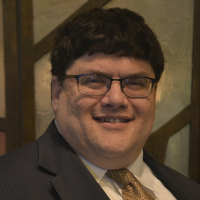
Author: Rabbi David Cohen
Published in February-April 2017 Sinai News
There is scientific truth, philosophical truth, historical truth and moral truth. At least there used to be.
The demise of truth was predicted in George Orwell’s prophetic novel, 1984, published in 1949, which described a dystopian world in which language had been purposefully twisted and debased to create a reality unmoored to events, history or truth. While many have noted the extent to which Orwell’s world has come to pass, others maintain that Aldous Huxley’s Brave New World (1942), may be a better description of the current zeitgeist.
The late media theorist Neil Postman compared the two works in his book, Amusing Ourselves to Death: Public Discourse in the Age of Show Business:
“What Orwell feared were those who would ban books. What Huxley feared was that there would be no reason to ban a book, for there would be no one who wanted to read one. Orwell feared those who would deprive us of information. Huxley feared those who would give us so much that we would be reduced to passivity and ego-tism. Orwell feared that the truth would be concealed from us. Huxley feared the truth would be drowned in a sea of irrelevance. Orwell feared we would become a captive culture. Huxley feared we would become a trivial culture, preoccupied with some equivalent of the feelies, the orgy porgy, and the centrifugal bumblepuppy.”
The search for truth has been a Jewish preoccupation for millennia. Jere-miah declared “The Lord God is truth” (Jer.10:10); the Psalmist wrote, “Your Torah is Truth” (Ps. 119:142); and of the verse “And speaks the truth in his heart” (Ps. 15:2) was taken to mean that one should keep a promise, even if she only made it in her heart.
While perception of truth may be shaped by one’s disposition or culture, Judaism maintains that truth is a constant. The word for truth is “Emet;” since it is composed of the first, last and middle letter of the Hebrew Alef Bet, it suggests that truth is all encompassing. The 11th century sage Rashi interpreted the Talmud’s statement, “Truth is the seal of the Holy One” (Bavli, Shabbat 55a), that the God of truth is found where there is truth and God’s absence is felt wherever there is false-hood.
In the Golem story, truth is equated with life itself. The animated homuncu-lus has the word “EMET” engraved on its forehead. When the letter alef is removed, all that is left is MET, which means dead, and accordingly the Golem is no more. With truth there is life; without, existence is untenable.
While scientific and philosophical truth have informed us, the Torah, itself, is not a work of science or philosophy. It is a message of moral responsibility and ethical truth. The question for me isn’t, “did the Red Sea slip exactly as described?”, but rather, “what is the moral message God wants us to take away from the narra-tive?” I don’t wonder if Abraham almost sacrificed Isaac but rather “how might his travail inform the relationships I have with my loved ones?” We may not be able to” know truth to its innermost parts,” as the Brandeis University motto suggests. Even so, our search for truth is as Jewish a quest as there is.
